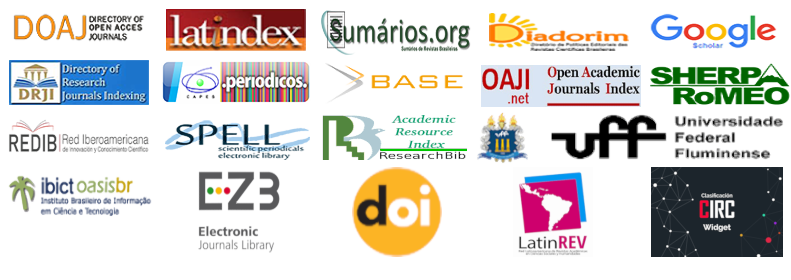Rotular não é Preciso! Reflexões sobre a Dicotomia “Qualitativo-Quantitativo” em Administração/Gestão
DOI:
https://doi.org/10.20401/rasi.4.2.265Abstract
Editorial
Downloads
References
Abdalla, M. M., Oliveira, L. G. L., Azevedo, C. E. F., & Gonzalez, R. K. (2018). Quality in Qualitative Organizational Research: types of triangulation as a methodological alternative. Administração: Ensino e Pesquisa, 19(1), 66–98. https://doi.org/10.13058/raep.2018.v19n1.578
Allwood, C. M. (2012). The distinction between qualitative and quantitative research methods is problematic. Quality & Quantity, 46(5), 1417–1429. https://doi.org/10.1007/s11135-011-9455-8
Downey, H. K., & Ireland, R. D. (1979). Quantitative Versus Qualitative: Environmental Assessment in Organizational Studies. Administrative Science Quarterly, 24(4), 630. https://doi.org/10.2307/2392368
Fielding, N. G. (2012). Triangulation and Mixed Methods Designs. Journal of Mixed Methods Research, 6(2), 124–136. https://doi.org/10.1177/1558689812437101
Gibson, C. B. (2017). Elaboration, Generalization, Triangulation, and Interpretation. Organizational Research Methods, 20(2), 193–223. https://doi.org/10.1177/1094428116639133
Greene, J. C. (2008). Is Mixed Methods Social Inquiry a Distinctive Methodology? Journal of Mixed Methods Research, 2(1), 7–22. https://doi.org/10.1177/1558689807309969
Kern, F. G. (2018). The Trials and Tribulations of Applied Triangulation: Weighing Different Data Sources. Journal of Mixed Methods Research, 12(2), 166–181. https://doi.org/10.1177/1558689816651032
Kilmann, R. H., & Mitroff, I. I. (1976). Qualitative versus Quantitative Analysis for Management Science: Different Forms for Different Psychological Types. Interfaces, 6(2), 17–27. https://doi.org/10.1287/inte.6.2.17
Pope, C., & Mays, N. (1999). Qualitative methods in health research. In C. Pope & N. Mays (Eds.), Qualitative research in health care (pp. 1–10). London: BMJ Books.
Sauerbronn, J. F. R. (2013). Diga-me o que publicas e te direi quem és: Perspectivas e resistências na publicação da produção de conhecimento em Marketing. Revista de Negócios, 18(1). https://doi.org/10.7867/1980-4431.2013v18n1p42-52
Turner, S. F., Cardinal, L. B., & Burton, R. M. (2017). Research Design for Mixed Methods. Organizational Research Methods, 20(2), 243–267. https://doi.org/10.1177/1094428115610808
Downloads
Published
Issue
Section
License
RASI, in accordance with Law No. 9,610 of February 19, 1998, which amends, updates and consolidates Brazilian copyright law and makes other provisions, adopts the following conditions of the Copyright Assignment:
1. RASI maintains, with the transfer of copyrights, the possession of rights over the content published;
2. The author retains his moral rights of the content, including the right to be identified as the author whenever the content is published;
3. Despite the attribution of copyright, the author retains the right to reuse the material in future collections of his own work without encumbrance. The acknowledgments of the previous publication in the RASI are the only requirements in such cases;
4. The author may make photocopies of the content, or distribute it by electronic mail or fax, provided that they are intended for their own classes and for the purpose of meeting research objectives, provided that: (a) such copies are not resold and (b) reference to the original source of the publication and the name of the RASI are clearly indicated on all copies made of the document.











